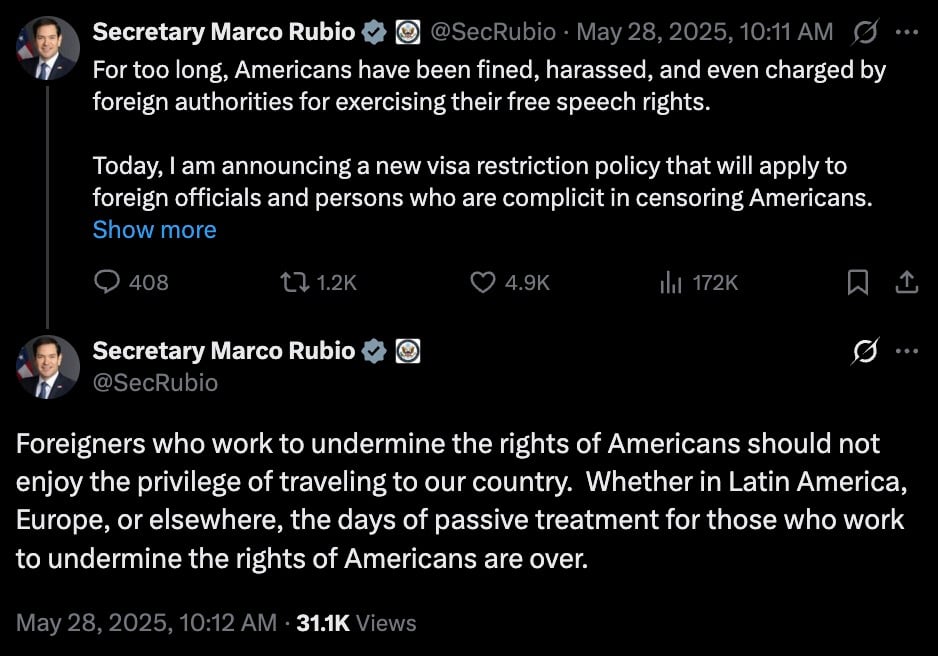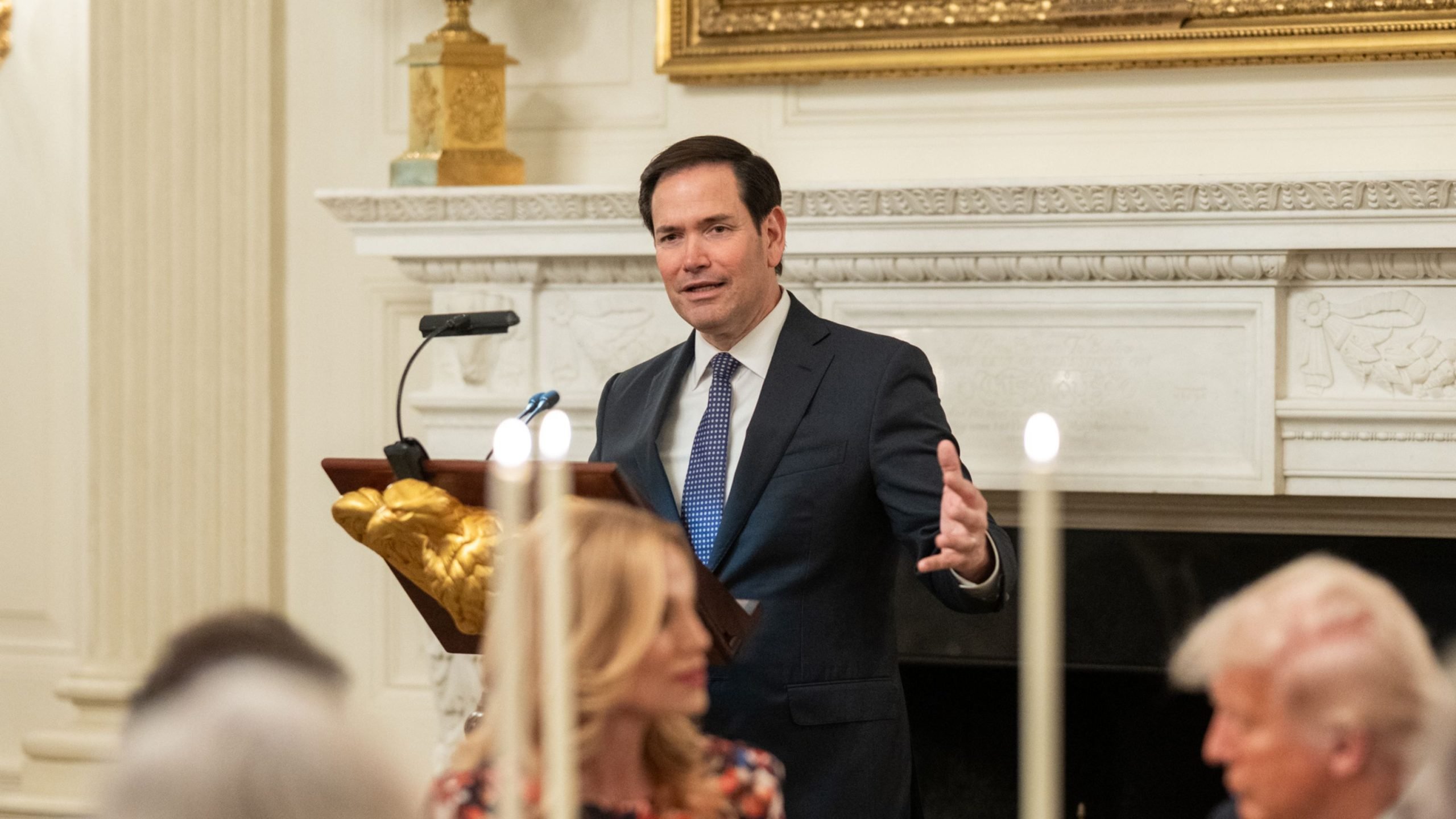Secretary of State Marco Rubio is escalating efforts to defend online free expression against what he describes as an expanding international censorship apparatus. In a sweeping policy shift, the State Department is now poised to block entry into the United States for foreign officials, and even their family members, who participate in suppressing the speech of Americans or interfering with US technology companies.
The move builds on a string of decisive actions taken by Rubio since he took over the department. Among his earliest targets was the Global Engagement Center (GEC), a State Department entity long criticized for bankrolling groups that advocate for tighter censorship controls online. In April, Rubio shut down the GEC entirely, citing its funding ties to the Global Disinformation Index, a UK-based NGO known for coordinating with Western intelligence-linked efforts to label dissenting views as misinformation.
More: Britain’s Speech Police Just Got a Visit from Uncle Sam
As part of the new visa policy, individuals involved in orchestrating or enforcing censorship campaigns, including foreign judges, bureaucrats, and regulatory officials, could find themselves barred from entering the US under the Immigration and Nationality Act.
The rules could also apply to officials overseeing Europe’s Digital Services Act (DSA), the EU’s brazen attempt to compel content censorship across global platforms like X, Meta, and Google.
“Foreigners who work to undermine the rights of Americans should not enjoy the privilege of traveling to our country,” Secretary Rubio posted on X. “Whether in Latin America, Europe, or elsewhere, the days of passive treatment for those who work to undermine the rights of Americans are over.”

The foundation for the policy shift began to take shape months earlier. Back in September 2024, a group of five Republican lawmakers from both chambers of Congress addressed a pointed letter to then-Secretary of State Antony Blinken. Their demand: implement visa restrictions targeting foreign officials engaged in censorship efforts that violate basic speech rights, with Brazil’s Supreme Federal Court Justice Alexandre de Moraes named explicitly.
The lawmakers didn’t mince words. The letter accused Moraes of “acting as a totalitarian dictator,” citing his track record of silencing opposition voices, conservative groups, and journalists inside Brazil. It also referenced his ongoing conflict with platform X, which he ordered blocked in Brazil under what the signatories called “questionable legal grounds.”
The message was clear: Brazil, described in the letter as “one of the world’s largest democracies,” is too important to allow its judicial leaders to go unchecked when they undermine speech. The lawmakers argued such censorship threatens not only Brazil’s democratic integrity but also US national security, warning that allowing such figures into the United States sets a dangerous precedent for democratic nations everywhere.
To that end, Representative Maria Elvira Salazar, one of the letter’s authors, joined Congressman Darrell Issa in introducing the “No Censors on our Shores Act,” aiming to bar foreign officials who violate First Amendment principles from entering the United States. On her website, Salazar singled out Moraes again, calling him “the vanguard of an international assault on freedom of speech against American citizens like Elon Musk.”
More: Keir Starmer’s Censorship Playbook
US officials are increasingly alarmed by foreign governments pressuring American companies to implement censorship regimes that go well beyond US legal standards.
The administration is tying its new visa denial authority directly to cases where officials try to penalize US-based platforms or restrict the flow of money to users engaged in lawful speech.
These efforts include threats to arrest platform employees, freeze corporate assets, or demand compliance with foreign content codes that infringe on protected expression.
The broad scope of the new policy means that visa access could be denied to hundreds, possibly thousands, of officials worldwide. According to internal memos, any foreign national responsible for demanding speech suppression that reaches into US jurisdiction, whether through direct censorship of American users or by coercing platforms with American operations, could fall within the scope of the ban.
This shift comes amid a larger foreign policy recalibration. In January, President Donald Trump signed the “America First Policy Directive,” which elevates the protection of US speech rights abroad to a central national interest. Rubio, along with Vice President JD Vance, has since made opposition to global censorship regimes a diplomatic priority.
Vance, during remarks delivered in Munich this February, called out European authorities for weaponizing laws against political opponents, singling out what he described as a campaign to silence populist voices. The administration also recently revoked the security clearance of a Department of Homeland Security official whose agency had previously partnered with NGOs that coordinated content takedown efforts in past election cycles.
The United States is not only disengaging from institutions that promote foreign-inspired speech restrictions; it is now actively moving to punish those responsible for exporting censorship into the public square.










